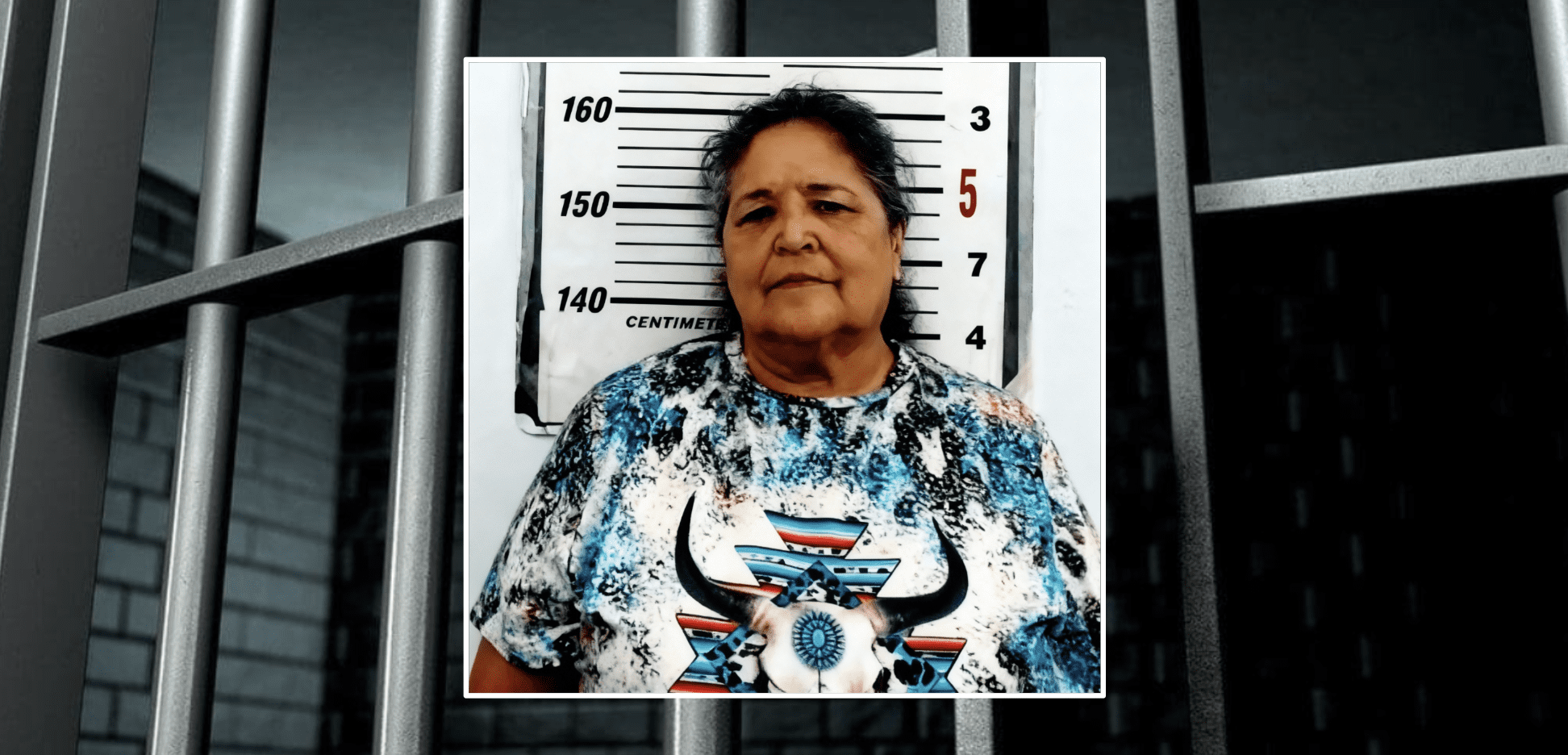A former legislator’s fight against the Texas Ethics Commission highlights the threat the agency poses to average citizens, often discouraging them from participating in the political process.
Former State Rep. Chris Paddie (R–Marshall) was fined by the TEC after he allegedly violated a 2019 ethics law that he helped write. The law prohibits former lawmakers from lobbying for two years after donating to colleagues.
A sworn complaint was filed against Paddie before the commission on January 30, 2023. The complaint alleged “illegal lobbying” after Paddie reportedly made political donations from an old campaign account shortly before his resignation from office in 2022.
The commission subpoenaed nearly three years’ worth of documents from Paddie, even though the alleged illegal lobbying occurred during a three-month window in late 2022 and early 2023. Paddie’s attorney claims the TEC’s document requests “[go] beyond the scope of the complaint.”
Paddie obliged, providing 285 pages of responsive documentation.
Two years into the TEC’s investigation, on June 12, 2025, the commission finally held a closed-door preliminary review hearing in Paddie’s case. The commission determined “there was credible evidence Paddie had violated Election Code 253.007” and assessed a civil penalty of $55,000. At that point, Paddie’s only option was to appeal to the TEC itself for a formal hearing that could only be expected to affirm—or even increase—the initial fine.
The Lawsuit
On July 24, Paddie filed a lawsuit against the TEC in the 71st Judicial District Court in Harrison County.
The lawsuit alleges that Jordan Hunn—the TEC’s deputy director of enforcement—sent an email to Paddie’s team in July 2025 which “threatened that if Paddie did not pay the $55,000.00 fine, Hunn would (1) bar Paddie from attempting to resolve the Sworn Complaint short of a public hearing, (2) take the depositions of Paddie’s consulting clients, and (3) publicly disclose communications about the matter that were made confidential by law.”
Paddie’s team argues that Hunn’s threats are illegal, are beyond the scope of Hunn’s powers, and violate Paddie’s due process rights.
He is asking the court for a temporary restraining order and temporary injunction—meaning he is not seeking monetary relief in the lawsuit but is asking the court to prohibit the TEC from following through on Hunn’s threats.
“Plaintiff [Paddie] asks the Court to restrain TEC from conducting depositions in SC-3230109. Plaintiff further asks the Court to restrain TEC from publicly disclosing information labeled Exhibit S and introduced at Paddie’s June 12, 2025, preliminary review hearing,” reads the lawsuit.
TEC Concerns
Tony McDonald, a Fort Worth attorney specializing in constitutional law, said the problem originates with the TEC’s unconstitutional structure.
“If you look at Article III, Sec 24a, the TEC was only given constitutional authority to do two things: recommend salary increases to voters (something they’ve never done) and to set the legislative per diem,” McDonald told Texas Scorecard. “But the legislature has given their appointees the right to prosecute complaints over Texans’ free speech activities, with disastrous results.”
According to McDonald, the TEC’s lack of accountability can have serious consequences.
“Unlike elected prosecutors, or the elected attorney general, who are accountable to the voters and operate in open court, the TEC conducts nearly all of its enforcement activities in secret,” he added. “Texans accused of violating the state’s speech regulations are dragged into secret hearings and are forced to testify against themselves. Those who cannot afford an attorney are not provided with one.”
“The TEC’s enforcement process represents a constitutional aberration. It is a stain on our state and our constitutional order,” McDonald concluded.
McDonald also criticized the process of filing complaints with the TEC.
“Anybody can file a sworn complaint against somebody they do not like,” said McDonald. “Then that person faces massive fines. They’re often forced to reach a settlement that they may or may not be able to afford.”
Democrat Paul Hobby and Republican Jim Clancy both formerly served as chairmen on the TEC board in the 2010s. In a 2013 interview with the Texas Tribune, they admitted the process can be used to discourage average Texans from participating in civic affairs.
“You ought to see these people who leave our meetings in tears, these sweet, simple people who missed a box, missed a deadline,” said Hobby. “They get a letter [from the Ethics Commission] and they can’t sleep at night, they hire a lawyer they can’t afford. There’s no moral sanction here, they’re not convicted felons. But these people swear, they promise, ‘I’ll never participate in the process again.’”
Clancy added, “The reason why you see a real pushback when you start talking about some expanded powers, more disclosure, more fines, is because there’s a feeling that those people who try to comply are punished for doing so.”
Case Studies
There are many examples of the TEC training its guns on regular citizens.
Darnella Wilkerson—a soft-spoken, older, black woman—sought to make a modest impact in Houston’s local politics by serving as treasurer of the African American Caucus (AAC), a small political action committee she registered in September 2019.
Although she disclosed only $3,458.60 in expenditures to fund a photographer and police escort for a single political event, Wilkerson was reported to the TEC by a rival blogger who alleged she had not properly filled out campaign finance forms or revealed the source of the funds.
Despite Wilkerson’s attempts to navigate Texas’ campaign finance laws, she received a crushing $17,500 fine from the TEC and endured public accusations of wrongdoing.
This ended Wilkerson’s political involvement. As a result of the TEC’s abuse, Wilkerson resigned as treasurer, shut down the AAC, and announced her intention to move to New York to escape harassment in Texas.
In a separate incident, Katy Christian Magazine was targeted by the TEC. The case highlights how not being “in the know” about settling with the commission can have devastating results.
In 2018, Joseph Menslage, owner and publisher of Katy Christian Magazine, was accused of charging a political candidate $1,200 for a half-page ad while his opponent paid just $400 for a similar advertisement. The TEC found this to be a violation of Texas Election Code §255.002(b), which prohibits charging different rates for comparable political advertising.
Menslage maintained his innocence rather than negotiating a settlement, since the lower rate was a result of the politician negotiating a discount while his rival did not. As a result, the TEC imposed a $5,000 fine on Menslage and Katy Christian Magazine for the alleged $800 advertising overcharge.
This story contrasts greatly with the 2010 case of Terry Lowry, publisher of The Link Letter. Lowry was accused of violating the same election law, charging two candidates vastly different rates for the same amount of ad space: $10,000 for one candidate and $5,000 for another.
Lowry knew he needed to negotiate with the TEC, so he agreed to a settlement that neither admitted nor denied wrongdoing. As part of the settlement, he paid just $500—compared to Menslage’s $5,000 penalty. The TEC seemed content to resolve the case quietly, despite Lowry’s professional operations and rates running 10 times that of Katy Christian Magazine.
Although Paddie is a well-connected former legislator and lobbyist, the Texas Ethics Commission continues to pursue him as he challenges its allegations.
“If someone like Chris Paddie, a politically connected former rep with an attorney who used to work for the TEC, can’t get off the merry-go-round after three years, what hope does an everyday Texan have if they’re placed in the TEC’s gunsights?” questioned McDonald. “The TEC has proven themselves to be a grave threat to the free speech rights of 30 million Texans. Any Texan can be dragged in front of Texas’ secret speech police at any time, simply for engaging in political speech without hiring a campaign finance attorney first.”
Paddie and the TEC did not respond to Texas Scorecard’s request for comment in time for publication.
If you or anyone you know has information regarding court cases, please contact our tip line: scorecardtips@protonmail.com.
No ads. No paywalls. No government grants. No corporate masters.
Just real news for real Texans.
Support Texas Scorecard to keep it that way!





